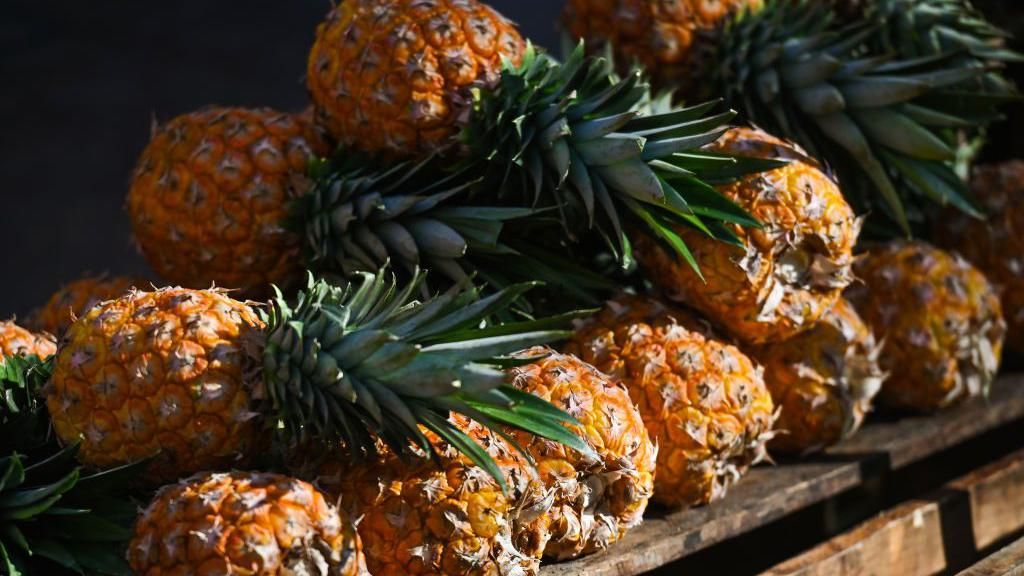Pineapple Craze Shakes Up Spanish Supermarkets with Romance Hopes and Chaos
3 min read

A new trend in Spain is turning the supermarket experience into a surprising social event, as singles flock to Mercadona stores with hopes of finding love through a fruity signal. The craze, which involves placing an upside-down pineapple in one’s shopping cart, has recently sparked scenes of chaos and even police intervention.
The phenomenon has gained traction thanks to actor and comedian Vivy Lin. Lin’s viral TikTok video featured her maneuvering a shopping trolley through a Mercadona store, promoting the idea that the key to romance lies in a specific supermarket routine. According to Lin, the magic hour for meeting potential partners is between 7 p.m. and 8 p.m., and the upside-down pineapple is the secret code for finding a date. Mercadona’s official TikTok account further fueled the frenzy by posting a pineapple with the caption, “The pineapple on the shelf of Mercadona waiting for you to get a date.”
Participants are instructed to place the pineapple in their cart and head to the wine section, where they hope to attract someone who responds to the signal. This quirky approach to romance has quickly gone viral, leading to some unusual and sometimes unruly scenes in stores.
In Madrid, reports have emerged of groups of teenagers aimlessly pushing trolleys around the supermarket during the designated hour, often without making any purchases. A particularly eye-catching incident involved a man dressed as a giant pineapple, celebrating his bachelor party inside a Mercadona store. Meanwhile, in Bilbao, the situation escalated to the point where the police were summoned to manage the crowds, although their intervention was ultimately unnecessary.
The trend has been further amplified by a catchy song circulating online, which includes the lyrics: “In the wine section / My heart races / Looking for someone special / That my soul needs.” This catchy tune has become synonymous with the pineapple craze, further energizing participants.
Interestingly, the use of an upside-down pineapple as a signal is not entirely new. Traditionally, it has been associated with the swinging community as a discreet way for individuals interested in partner swapping to find each other. However, this latest application of the symbol is focused more on romantic connections rather than intimate exchanges.
Despite the trend’s popularity among some shoppers, it has not been well received by all. Mercadona employees have expressed frustration over the added workload, as they are left to deal with the aftermath of the craze, including clearing out unpurchased pineapples. One video even showed a store worker pushing boxes of pineapples back to the storeroom as the clock approached 7 p.m.
Mercadona has distanced itself from the trend, stating that it was not initiated by the company but rather emerged spontaneously. Some critics have weighed in on the situation, including social commentator Susana Quadrado, who wrote in La Vanguardia newspaper. Quadrado described the phenomenon as an example of how social media campaigns, while seemingly innocent and entertaining, can significantly influence social behavior. She cautioned that such trends might turn users into unwitting promoters of online fads, often at the expense of practicality and order.
In summary, Spain’s pineapple craze has transformed supermarket outings into a social experiment where romance and chaos intermingle. While it has provided entertainment and a novel approach to dating for some, it also highlights the potential pitfalls of viral trends and their impact on everyday life.